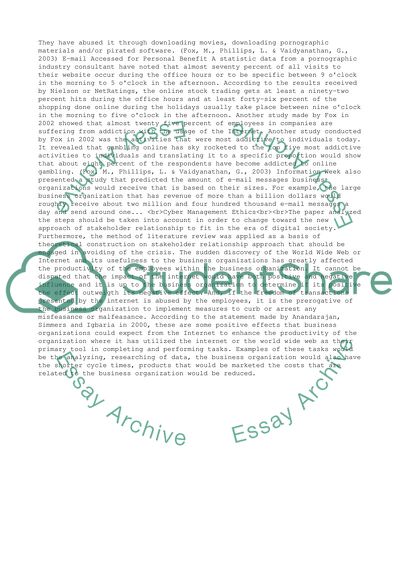Cite this document
(“Cyber Management Ethics Essay Example | Topics and Well Written Essays - 2750 words”, n.d.)
Retrieved from https://studentshare.org/management/1421713-cyber-management-ethics
Retrieved from https://studentshare.org/management/1421713-cyber-management-ethics
(Cyber Management Ethics Essay Example | Topics and Well Written Essays - 2750 Words)
https://studentshare.org/management/1421713-cyber-management-ethics.
https://studentshare.org/management/1421713-cyber-management-ethics.
“Cyber Management Ethics Essay Example | Topics and Well Written Essays - 2750 Words”, n.d. https://studentshare.org/management/1421713-cyber-management-ethics.


